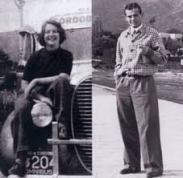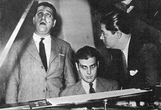 I have been translating a lot of lyrics lately that are more than anything about love and poetic misery related to it. However, another common theme is the arrabal, the (poor) neighbourhood of origin. We can recognize a lot of mixed feelings about love and women in tango, and that is also true for the arrabal.
I have been translating a lot of lyrics lately that are more than anything about love and poetic misery related to it. However, another common theme is the arrabal, the (poor) neighbourhood of origin. We can recognize a lot of mixed feelings about love and women in tango, and that is also true for the arrabal.
The following song tells us about the fate of children from poor families, most likely immigrant families. Many barrios (neighbourhoods) of Buenos Aires, like La Boca, Barracas, Nueva Pompeya and San Telmo used to be full of poor European immigrants who struggled to survive in a harsh environment. If you want to understand the essence of Argentine culture, small stories of hope and tragedy in songs like Se lustra, señor are key.
In case you do not get the ending of this story: it is likely that the kid is suffering from tubercolosis, a common problem at the time and quite easy to catch for children who were working on the streets.
Let us listen to two famous singers, Ángel Vargas and Alberto Castillo.
—
—
Shoeshine boy (Se lustra, señor)
The boy with his old clothes, with a skin damaged by the sun…
life has treated him with all its toughness.
On the same corner, he always shouts:
“Sir, I shine your shoes better than those guys in the salon*!”
I know this brave** boy’s story.
One day, his father did not return home
and he, without a word, made his own box
and ever since, there has never been a lack of food (lit: bread).
“Sir, let me shine your shoes!”
“Shoe shine, sir?”
While he is looking for hope,
life amasses trouble and pain.
Each and every day, even when
the sun burns us
or when the winter cold
makes our hearts freeze.
And one of these mornings,
the wind of the arrabal
left a strange silence
over there, on the threshold.
For a few days, we have not heard his call:
“Sir, I shine your shoes better than those guys in the salon!”
Yesterday we went to see him, and I just have got to tell you this…
He looks at us, sits up and starts talking:
“Mommy, come over here quickly
and bring me my shoe shine box,
because sir, I shine your shoes better than those guys in the salon…”
And like that, just like in this story that I have just told you,
the humble soul of the arrabal accumulates itself.
*This probably does not refer to salon as in milonga. Here, it is most likely some kind of store where locals would go to have their shoes polished.
**The literal translation would be ´I know of his value´. But valor can also mean courage, and is this context the boy is courageous enough to help his family survive against all odds. So, his courage can be his personal value, too.








You must be logged in to post a comment.